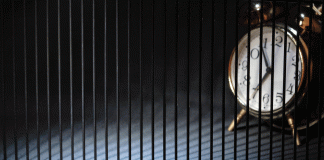Fast fashion: a parade of lies
Not only are they all brands of the same Spanish manufacturer, Inditex, but they are all part of the same trend that has revolutionised the fashion industry: fast fashion. The rise of this trend is based on two principles that have proven to be magnetic for consumers, especially young ones: clothes tailored to the latest trends (today on the catwalk, tomorrow in the...
Tutorial: How to easily spot fake news
In an interview published by Inc.com, 24-year-old Romanian Ovidiu Dobrota, from Oradea, Romania, boasted that his fake news site Ending The Fed had a substantial impact in supporting Donald Trump in the presidential elections. According to a Buzzfeed analysis, his boasting is well-founded.
The ideal of a couple
I recently watched a TV show in which the guests, which included professors and psychotherapists, when asked about the feminine ideal in the contemporary world, expressed opinions that seemed strange to me: that such an ideal would no longer be detectable or would no longer have a purpose, today...
The mirror is part of us | Friendship and our self-image
A friend carries within him our identity’s safe box.
Why we think things are worse than they are
In the age of the internet and the “global village,” an irrational fear taking hold in a small American town can easily go viral, reaching and affecting us all. Once online, news—whether true or false—can have a corrosive effect, leading us to feel cynical about the future and to hold low expectations for our leaders.
A generation that breathes anxiety
“You are always afraid people will judge you or know your weakness. It’s like being totally naked in front of a huge crowd,” says Bruno Feldeisen about the hidden struggle he had with anxiety.
Caught between the hands of a clock
Since Hans Selye introduced the concept of stress into the language of science almost seven decades ago, it has now become firmly rooted in our vocabulary and permeates all levels of everyday life. One common cause of stress, though unevenly distributed among us mortals, weaves enough threads into its intricate fabric that it cannot be entirely avoided: the relationship with time.
Why we paint: the Krubi sisters
Sister trio Clara, Emily and Sharon always dreamed of different things they could do together when they grew up. They never thought they would be where they are now as travelling artists with a thriving business and a 17,000 (and growing) following.
The kindness that wipes away the effects of daily stress
Daily stress is a good excuse to avoid other people's needs, but this choice is a double loss. The kindness we display to make other people's days better is a very strong antidote to the high level of stress we experience daily.
Indian soul night
One night, thousands of miles apart, two young women of the same age made a decision—a seemingly trivial one, but one that would seal the fate of one of them.
The secrets of a successful failure
Not many management books can be read with the pleasure of reading a novel, because few are so well written. Donald Keough's book is one of those few.
The eternal illusion of the fundamental secret
One of the mind’s most pleasant and, at the same time, most tormenting occupations is to dream of a better life. How many times have we tried to generate a change for the better by means of a new purchase, new friends, new house, new job, new relationship or other ideas for a fresh start?
Dislike for the likes that manipulate us
Paris, November 13, 2015. A European capital is struck cruelly by fundamentalists who justify their crimes in the name of something sacred—an event that shocked the entire world. It was neither the first nor, unfortunately, the last tragedy whose impact on the public has become a subject of analysis.
The original meaning
Before I started looking for the meaning of life, I thought I had already found it. Or, that it had been given to me. In the world I came from, the road was clearly laid out. My life's major events were all mapped out, and precious little was negotiable.
Beyond the mask of anger
Thousands of cries for help are hidden every day behind extreme violence or riots. Few of them overcome the wall of our indifference and prejudice, and even fewer of those in need get a second chance. Stories like that of Sephton Henry show what it means to offer help even when change for the better seems impossible.


























